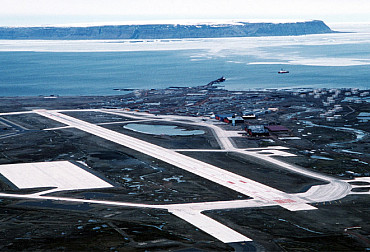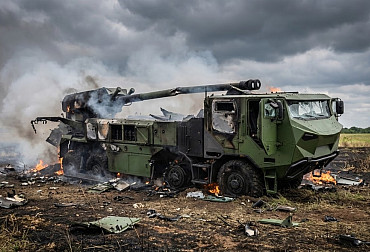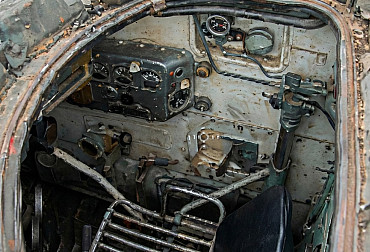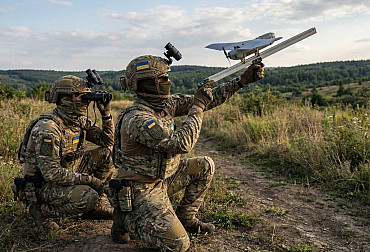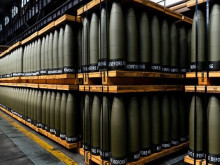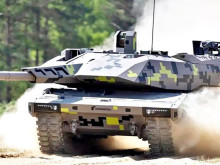Extraordinary Challenges for Updating Conceptual and Strategic Documents of the Czech Defence
In accordance with the government's programme declaration, the Ministry of Defence and the General Staff of the Czech Armed Forces are currently working intensively on updating basic conceptual, strategic and planning documents. These updates are being carried out in an extremely heated security situation caused by the war in Ukraine. Lessons learned from this conflict will undoubtedly be reflected.
Another major factor posing an exceptional challenge is the 'leapfrog' increase in the Czech Republic's defence spending to 2% of GDP resulting from the implementation of the government's draft law 'on defence financing'. This will already represent an additional CZK 21.5 billion for the 2024 budget, which will not be easy to use rationally, especially in view of the state of work in progress of major acquisition projects. Although the relevant government bill is a step in the right direction, it essentially deals only with the issue of budgeting with a three-year time horizon. While it provides for the possibility of year-on-year transfers of unspent funds to so-called strategic projects, it is questionable to what extent it will provide the necessary spending stability and flexibility for long-term acquisition planning. In this context, it should be noted that the government has so far failed to fulfil its tasks from the programme declaration: 'By the end of 2022, we will submit a legislative proposal for a system of long-term stable and effective financing of the army and its modernisation in the form of a 'defence fund' and 'By 2023, we will submit an amendment to the law on public procurement with regard to the specifics of defence acquisitions'.
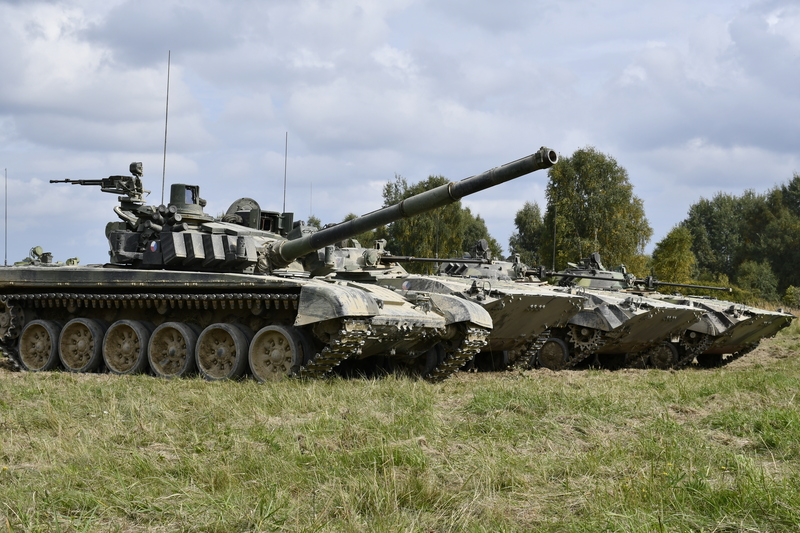
The updating of major conceptual and strategic documents, which not only have a long-term scope but also a certain "inertia" due to the implementation of long-term acquisition projects in particular, requires thorough and comprehensive analytical preparation. This should include the use of standard analytical methods (e.g. the method of future scenarios, SWOT, PESTLE, CBA, etc.). The analytical phase of the preparation of conceptual and strategic documents is crucial for their quality, but has not been a strong point of the preparation process in the Ministry of Defence so far. In this respect, it is worth recalling the process of preparation of the "White Paper on Defence" from 2011, which was initiated by the then Minister A. Vondra's initiative, a number of experts from the civilian sphere also participated.
A key aspect of the current assessment of the security situation in our region is the ongoing war in Ukraine. From this perspective, Russia has emerged as the only serious potential military adversary, which is a determining aspect for modelling the most likely crisis and operational scenarios. Similarly, the lessons learned in the field of military strategy, tactics and effectiveness of different types of weapons and systems from the war in Ukraine will be of particular importance for the formulation of objectives and directions for the further development of our armed forces.
The authors of the currently updated conceptual, strategic and planning documents will undoubtedly reflect the Ukrainian Lessons Learned. However, from a general perspective, it is possible to point out some aspects or issues that should be given special attention when updating the documents:
The main tasks for the armed forces (apart from the conscription laws) are set out in the 2017 Defence Strategy of the Czech Republic in the form of so-called political-military ambitions. These actually characterise the most probable future operational scenarios in which the Armed Forces should operate. It is, by the way, a question to what extent the Czech Army is able to fulfil these ambitions, which will certainly be assessed and possibly adjusted during the ongoing update of the Defence Strategy of the Czech Republic. In this context, it should be recalled that the aforementioned ambitions and operational scenarios must be consistently aligned within the framework of NATO defence and operational planning. From its cyclical process, updated national Capability Targets (CTs) will be generated this year. Their implementation must be a priority in the relevant MoD plans and budget.
The level of ground-based air defence of the Czech territory, especially of important objects and critical infrastructure, is currently unsatisfactory. This has already been admitted by a number of responsible persons and experts. In the event of a conflict with Russia, the territory of the Czech Republic (similarly to the Ukrainian interior in the current war) would primarily be the target of ballistic and precision-guided missiles, against which our ground-based air defence will be insufficient even after the acquisition of four short-range SPYDER batteries. Therefore, the Czech Republic will have to continue to rely to a large extent on the alliance's NATINAMDS system or the capabilities of its own air force. An effective solution may be to join the upcoming German joint ground-based air defence project, which should involve a total of 13 alliance partners, including the Czech Republic. However, implementation will require adequate time in the order of years and considerable costs.
Of particular importance for the further development of our supersonic air force capabilities will be the decision related to the termination of the lease of the current 14 Gripen aircraft in 2027. This could have a negative impact on other cost needs of the MoD, such as the modernisation of the ground forces. To address this issue, it is first and foremost necessary to define the future Concept of Operations (CONOPS) role of our supersonic air force, including within NATO. At the same time, it is necessary to develop a transparent cost-benefit analysis of the option of acquiring the F-35 versus retaining the existing Gripen aircraft with the possible purchase of their upgraded version to a total of 24. Given the long-term exceptional importance and cost of this project, it is also desirable to achieve the necessary political consensus – in the spirit of one of the declared principles of the Minister of Defence's "Ten Principles": "Debate on ensuring the protection of the Czech airspace after 2027 – seeking consensus across the political spectrum".
A number of expert commentaries rightly point to the absence of rocket launchers in the arsenal of the Czech Artillery, which, according to the current Concept for the Construction of the Czech Armed Forces until 2030, will have only French CAESAR howitzers in its arsenal. Lessons learned from the war in Ukraine show the extraordinary effectiveness of rocket launchers, in particular the US HIMARS, but also the supplied Czech GRAD rocket launchers (retired from the arsenal of the Czech Armed Forces). The importance of rocket launchers for the future capabilities of the Armed Forces is also confirmed by their urgently planned acquisition by almost all neighbouring alliance partners.
For some time now, there has been a discussion on the state of mobilisation readiness of the Czech Armed Forces, or rather the entire state. The Minister of Defence speaks of the need to "redefine mobilisation plans" and the Chief of the General Staff of the Czech Armed Forces announces the increasing relevance of considerations of partial mobilisation. According to the current conscription law, conscription can only be carried out in a state of national emergency or a state of war, but this does not allow for the necessary documentation to be kept in advance, resulting in a lack of overview of the approximately 1.5 million defence-ready population. It is also not possible to ensure the timely mobilisation of the armed forces or sufficient training of reserve soldiers, while the time needed to implement all such measures is estimated at one year. However, this problem is not sufficiently addressed by the Government's current draft amendment to the Conscription Act, which consists in the introduction of the institute of voluntary predetermination.
The so-called principle of deferred need has so far been applied for the transition of the Czech armed forces and the entire state to a state of war. However, in view of the gradual deterioration of the security situation, there is an acute need to reconsider this principle. Already in the Defence Strategy of the Czech Republic/2017 it is stated: "Previously assumed long warning periods led to the concept of the so-called deferred need. However, developments in recent years have shown that an armed conflict in Europe can break out suddenly, thus significantly shortening the warning period for preparing armed forces to achieve operational capabilities. Therefore, a gradual build-up of war-fighting capabilities will be implemented, including the acquisition of sufficient materiel and stockpiles to cover routine and war losses, increasing the readiness of reserves, contracting for supplies and other measures." However, implementation is very slow and the current government's programme statement does not address this issue at all, or only deals with the issue of active reserves. However, it is necessary to take into account that the declared mobilisation measures would be a task for a number of years with costs in the order of tens of billions of CZK.
Last but not least, special attention must continue to be paid to the domestic defence industry. The implementation of the principle of a minimum 40% share of the domestic defence industry in foreign acquisitions has had a significant impact, but its capacities remain under-utilised. The current legislation for the MoD acquisitions is very limiting – so far, the commitment from the government's programme statement is not being fulfilled:" By 2023, we will submit an amendment to the Public Procurement Act with regard to the specifics of defence acquisitions". In this context, it is also highly desirable to take other concrete measures to involve the Czech defence industry more widely in projects financed by the European Defence Fund and the NATO Innovation Fund.
It is questionable how the general principle that the army should procure the maximum production of the domestic arms industry is enforced, which would, among other things, guarantee the most cost-effective provision of logistics, but also the reimbursement of possible war losses. Here it is appropriate to cite a fundamentally correct (but so far rather neglected) principle stated in the "Strategy for the Arming and Support of the Domestic Defence Industry: 'In order to ensure the highest possible level of security of supply of military equipment and the related maximisation of national sovereignty, strategic production capacities must be preserved and further developed. In this sense, the State must protect the capabilities and capacities of the defence industry to ensure the production and supply of essential military equipment for the needs of the armed forces and further develop these as far as possible in the context of increasing strategic autonomy with a view to reducing dependence on foreign suppliers. In areas where the defence industry of the Czech Republic does not have the necessary capacities and technologies, the Ministry procures military material and technologies from foreign suppliers." From this point of view, one can perhaps only lament the failure to take advantage of the possibility of acquiring domestically produced DITA howitzers or RM-70 VAMPIRE rocket launchers.
Despite the proclamation of the government's programme statement ("We will strengthen the financing of science and research projects in the field of defence and security"), the expenditure on support for military science, research and development has long been underestimated, which has been stagnating in the MoD budget for a number of years at the level of only about EUR 400 million. This is far below the Alliance average.
Conclusion
The ambition of this article was to point out some crucial aspects that deserve special attention during the currently ongoing update of conceptual, strategic and planning documents in the field of defence of the Czech Republic and development of the armed forces. Given the stage of their elaboration, there might be hope that they will find at least a partial response. This could be helped in particular by an open expert "strategic discussion", which would be welcomed by the Chief of the General Staff of the Czech Armed Forces, as he stated in a recent media interview.
Finally, it should be stressed that the basic condition for the realism of all conceptual, strategic and acquisition decisions is their "financial viability", which will only be verified by the subsequent elaboration of a long-term financial plan. It may turn out that (for some years) even a level of 2 % of GDP for defence spending will not be sufficient.
Ing. Oldřich Hoďánek
After graduating from the Military Academy in Brno (1972), he served as a professional soldier in a number of positions in the field of technical support of troops up to the deputy commander of the tank division for armaments. Since 1993 he has worked at the Ministry of Defence of the Czech Republic, where he participated in the development of the defence planning system and the preparation of departmental conceptual, planning and evaluation documents. He completed a postgraduate course in logistics management at the US Army Logistics Management College and an international course in defence resource management at the US Naval Postgraduate School. He retired in 2009 as a member of the Permanent MoD Delegation to NATO in Brussels. He is still active in the security community of the Czech Republic.











